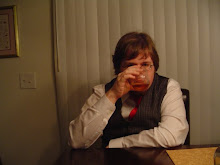Hello.
You most likely know me, as I doubt anyone on the internet stumbled onto this thing. But, in keeping with decorum, allow me to introduce myself. My name's Jasper, and (to continue with the train the previous sentence established), I'm a man of wealth and taste. Well, college-student-comfortable-poverty, but I make up for it with a big heaping of extra taste.
Now let's introduce this blog.
Where does the title come from? Well, if you read the text under it, it's a Russian phrase meaning, pretty much, "Let's go!" or "we are going!" It was what cosmonaut Yuri Gagarin (memorialized in the awesome statue on the right) said upon liftoff of the tiny metal ball he orbited the earth in. You can hear that exciting liftoff and exclamation here.
And, because we're on the subject of Russian history, let's introduce this blog with a great bit of Russian music.
Dmitri Shostakovich, from whom the title of this post comes, was a nervous, sensitive man who lived in Russia from his birth in 1906 to his death in 1975, spending much of his youth and the entirety of his adult life surrounded by the Soviet government.
He was also a composer of some of the most beautiful music of the 20th century. His emotional power, his sympathy for human suffering, and his incredible devotion to his art- he would rather leave his work unpublished than edit it to satisfy the Party -earned him two official denunciations and occasional bans of his work. in 1948, after the second denunciation, he took to waiting in the landing of his building at night, so that, should the police finally come to arrest him, his family wouldn't have to watch.
Shostakovitch was an idealist, and beholden more to the people of Russia than to the state itself. During the siege of Leningrad, he remained in the city, delivering a radio broadcast, serving as a fire marshal, and writing the anthemic Symphony No. 7, which later became an international symbol of Russian resistance to the German military. After the war, when ordered to produce music based on traditional Russian folk songs, he produced a song cycle derived from Jewish folk
However, both this sympathy for his fellow man and the sorrow that underlay his passion and wit are best expressed in the haunting Opus 110. When he was finally forced, in 1959, to join the Communist Party, Shostakovitch was crushed. According to his friends, he was contemplating suicide. From both this and the horrors of both the Soviet machine and World War II- it is often considered that the bombing of Dresden was also a major influence on Opus 110 -emerged this mournful, tragic string quartet. Dedicated "to the victims of fascism," a backwards stab at the oppressive Soviet state, it was quickly praised by officials as a fine example of Russian art.
So here it is. There may be more talking about other stuff later on, but enjoy this beautiful, beautiful version by the Emerson String Quartet.
(Apologies for using a limited-time download. I'm gonna try and find some good free hosting as soon as I can)




1 comment:
Jasper have you considered journalism as a career?
Post a Comment